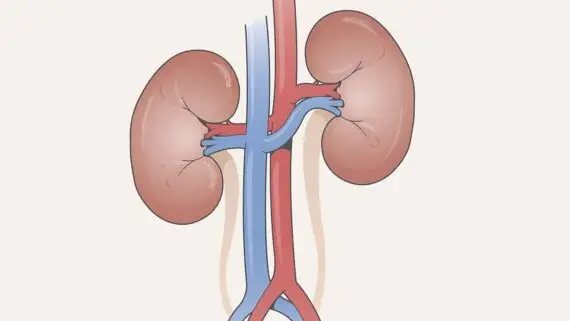Blog
Kidney Causes, Effects And Natural Solutions 2
Kidney Problems: Causes and Effects
Kidneys are essential organs responsible for filtering waste, balancing fluids, and regulating electrolytes in the body. When kidneys fail to function properly, it can lead to serious health complications. This article explores the causes and effects of kidney problems, providing valuable insights to help you understand and prevent these issues.
Causes of Kidney Problems
1. **Diabetes:**
– High blood sugar levels can damage blood vessels in the kidneys, leading to diabetic nephropathy.
2. **High Blood Pressure:**
– Increased pressure can harm kidney blood vessels, reducing their ability to filter waste.
3. **Chronic Kidney Disease (CKD):**
– Long-term conditions that impair kidney function over time.
4. **Glomerulonephritis:**
– Inflammation of the kidney’s filtering units (glomeruli) caused by infections or autoimmune diseases.
5. **Polycystic Kidney Disease (PKD):**
– A genetic disorder characterized by the growth of cysts in the kidneys.
6. **Urinary Tract Infections (UTIs):**
– Repeated infections can lead to kidney damage if not treated promptly.
7. **Obstructions:**
– Conditions such as kidney stones or enlarged prostate that block urine flow, causing damage.
8. **Medications:**
– Long-term use of certain medications like NSAIDs can harm kidney function.
9. **Lifestyle Factors:**
– Poor diet, lack of exercise, smoking, and excessive alcohol consumption can contribute to kidney issues.
Effects of Kidney Problems
1. **Accumulation of Waste:**
– Impaired kidney function leads to a buildup of toxins and waste in the blood, causing fatigue and weakness.
2. **Electrolyte Imbalance:**
– Kidneys regulate electrolytes like sodium, potassium, and calcium. Dysfunction can cause imbalances, leading to muscle cramps, irregular heartbeats, and other complications.
3. **Fluid Retention:**
– Poor kidney function can cause fluid buildup, leading to swelling in the legs, ankles, and face.
4. **High Blood Pressure:**
– Kidneys help regulate blood pressure; dysfunction can result in hypertension, creating a cycle that further damages the kidneys.
5. **Anemia:**
– Kidneys produce erythropoietin, a hormone that stimulates red blood cell production. Damage can lead to anemia, causing fatigue and weakness.
6. **Bone Health Issues:**
– Kidneys maintain calcium and phosphorus balance; dysfunction can lead to bone weakness and fractures.
7. **Cardiovascular Disease:**
– Kidney problems increase the risk of heart disease due to the interconnection between these organs.
8. **Acidosis:**
– The inability to remove acid from the blood can lead to metabolic acidosis, affecting overall body function.
9. **Nerve Damage:**
– Waste buildup can cause peripheral neuropathy, resulting in numbness and tingling in extremities.
10. **Reduced Immune Response:**
– Kidney disease can weaken the immune system, making infections more likely and severe.
Incase you are you are looking for a way to detoxify your kidneys to avoid kidney problem or dialysis click on the image below;
KIDNEY DETOXIFY
Symptoms of Kidney Problems: Recognizing Early Signs and Taking Action
Kidney problems can develop gradually, often going unnoticed until significant damage has occurred. Early detection and treatment are crucial to prevent further complications. Here are some common symptoms of kidney problems to watch out for:
1. **Changes in Urination:**
– **Frequency:** Increased or decreased frequency of urination, especially at night.
– **Color and Appearance:** Urine may be dark, cloudy, foamy, or bloody.
– **Pain:** Discomfort or a burning sensation during urination.
2. **Swelling:**
– **Edema:** Swelling in the feet, ankles, hands, or face due to fluid retention, as kidneys fail to remove excess fluid from the body.
3. **Fatigue and Weakness:**
– **Anemia:** Reduced production of erythropoietin, leading to fewer red blood cells and resulting in fatigue and weakness.
4. **Shortness of Breath:**
– **Fluid Buildup:** Excess fluid in the lungs can cause difficulty breathing.
5. **Skin Issues:**
– **Itching:** Persistent itching due to the buildup of waste products in the blood.
– **Dryness:** Dry and flaky skin as a result of kidney dysfunction.
6. **Metallic Taste in Mouth and Ammonia Breath:**
– **Uremia:** Accumulation of waste products in the blood can cause a metallic taste and bad breath.
7. **Nausea and Vomiting:**
– **Toxin Buildup:** Increased levels of waste in the blood can lead to gastrointestinal issues.
8. **Loss of Appetite:**
– **Reduced Interest in Food:** The buildup of toxins can suppress the desire to eat.
9. **Muscle Cramps:**
– **Electrolyte Imbalance:** Imbalance of minerals like calcium, phosphorus, and potassium can lead to muscle cramps and twitching.
10. **High Blood Pressure:**
– **Hypertension:** Kidney problems can cause or worsen high blood pressure, which in turn can further damage the kidneys.
11. **Difficulty Concentrating:**
– **Cognitive Issues:** Reduced oxygen supply due to anemia can affect brain function, leading to memory problems and difficulty concentrating.
12. **Back Pain:**
– **Kidney Pain:** Pain or discomfort in the back or sides, often indicating kidney stones or infection.
13. **Foamy Urine:**
– **Proteinuria:** Excessive protein in the urine, creating a frothy appearance.
If you experience any of these symptoms persistently, it’s essential to seek medical advice promptly. Early diagnosis and treatment can significantly improve outcomes and prevent further kidney damage. Regular check-ups and monitoring of kidney function are also crucial, especially if you have risk factors such as diabetes, high blood pressure, or a family history of kidney disease.
Recognizing the symptoms of kidney problems early can lead to timely intervention and better management of the condition. By staying informed and vigilant about your health, you can take proactive steps to protect your kidneys and ensure their optimal function. If you notice any changes in your health, consult a healthcare professional to determine the cause and receive appropriate care.
For Natural Treatment For Kidney Problem Click On The Image Below;
Preventing Kidney Problems
1. **Maintain a Healthy Diet:**
– Eat a balanced diet rich in fruits, vegetables, and whole grains. Limit salt, sugar, and processed foods.
2. **Stay Hydrated:**
– Drink plenty of water to help kidneys filter waste.
3. **Regular Exercise:**
– Engage in physical activities to maintain a healthy weight and blood pressure.
4. **Monitor Blood Pressure and Blood Sugar:**
– Keep these levels under control to prevent kidney damage.
5. **Avoid Overuse of Medications:**
– Use painkillers and other medications responsibly to avoid harming your kidneys.
6. **Quit Smoking and Limit Alcohol:**
– Both can contribute to kidney damage and overall health decline.
7. **Regular Check-ups:**
– Routine medical exams can detect early signs of kidney problems, allowing for timely intervention.
Understanding the causes and effects of kidney problems is crucial for maintaining kidney health and preventing serious complications. By adopting a healthy lifestyle, managing underlying conditions, and seeking regular medical advice, you can protect your kidneys and ensure their optimal function. Stay informed and proactive about your kidney health to enjoy a better quality of life.
For more information click on the call sign for questions and assistance.





